Achieving the dream of homeownership takes on a unique flavor when set against the backdrop of the Sunshine State – Florida. Whether you’re drawn to the enchanting coastal allure of Miami Beach condos or the serene suburban vibes of Tampa, FL, houses, navigating the path to owning a piece of Florida paradise comes with its own set of considerations. From the annual dance of hurricane season to the nuances of local architecture and environmental factors, being well-informed through an indispensable home inspection is paramount before buying a home.
Across Florida’s diverse regions, seasoned home inspectors have encountered an array of challenges that potential homebuyers should be aware of. In this Redfin article, we delve into six things to look out for when buying a home in Florida.
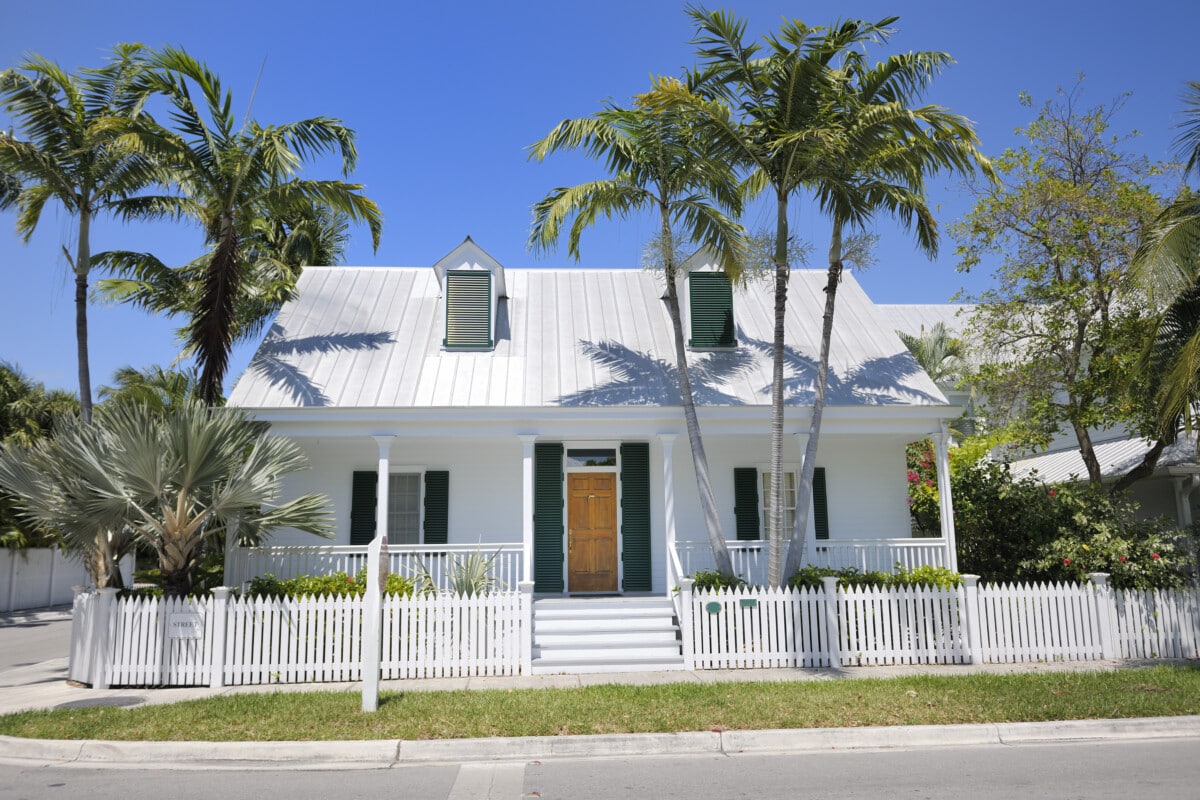
1. Regularly assess for mold
“For more than three decades, we’ve been serving the entirety of Florida. Our specialization lies in thorough mold assessments. Given the yearly exposure to hurricanes in our region, homes often experience significant water intrusion and damage from these storms. Unfortunately, some of these issues remain hidden until much later,” shares Inspection Services of Florida LLC.
“We collaborate closely with numerous customers who encounter respiratory problems. In such cases, we conduct assessments to determine if mold is the underlying cause. As a result of the history of hurricanes, we frequently uncover storm-related damage that was either left unaddressed or concealed, often due to house flipping.
Prior hurricanes have taught us a valuable lesson: comprehensive mold inspections are vital before purchasing a home. This step ensures transparency and helps safeguard your investment for the long term.”
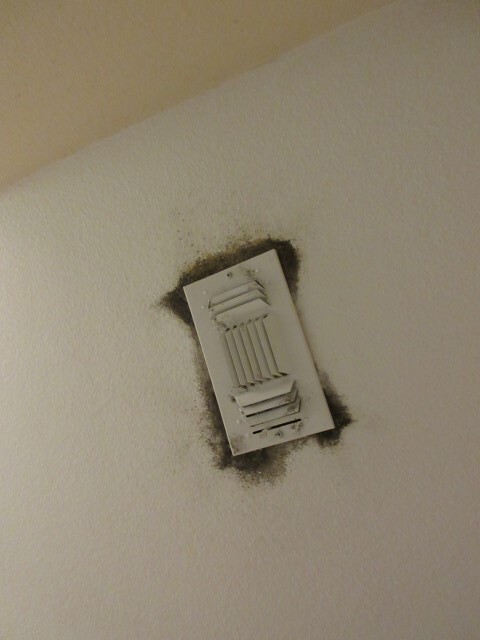
Courtesy of Inspection Services of Florida LLC
2. Pest intrusion
“On one of my home inspections I observed a hole in an exterior stucco-covered foam trim board. As I continued my inspection I noticed a Woodpecker flying around the area. So I decided to remove myself a distance away to see what the bird was doing. It only took a few minutes when I saw a Woodpecker land at the entrance of the hole in the trim board. I realized what was happening, the Woodpeckers using its bill to find insects. In this case the material that the Woodpecker was pecking on was easy to penetrate and so it continued to burrow out an entrance into the trim material,” says RTS Inspections.
“Exterior grade cement coated (stucco) foam molding is made of Styrofoam or Polystyrene Foam, which can be fabricated into many different shapes. This product is used nationally in many climates. Foam is easy to cut into and shape as needed. Stucco covered foam trim is very beneficial as a source of insulation and as a decorative element around exterior surfaces of a home, like around windows and doors.
As with all structures, there is always a concern for potential animal intrusion. Animals are very good at finding ways to get into areas to build nests. Rodents for instance will jump off tree branches that are too close to the building and land on roofs. Once they land they search for gaps and holes to enter into.
When inspecting a home it is crucial to look for possible entry points around the house and report on those areas. The next step for the inspector is to observe areas inside the house that might be impacted by those entry points. In the case of this Woodpecker, the damages were limited to just the exterior trim board. In other cases, I have seen gaps in soffits and eaves where animals have penetrated and entered into attics. In the case of animal or pest infestation, a licensed pest removal contractor is recommended.”
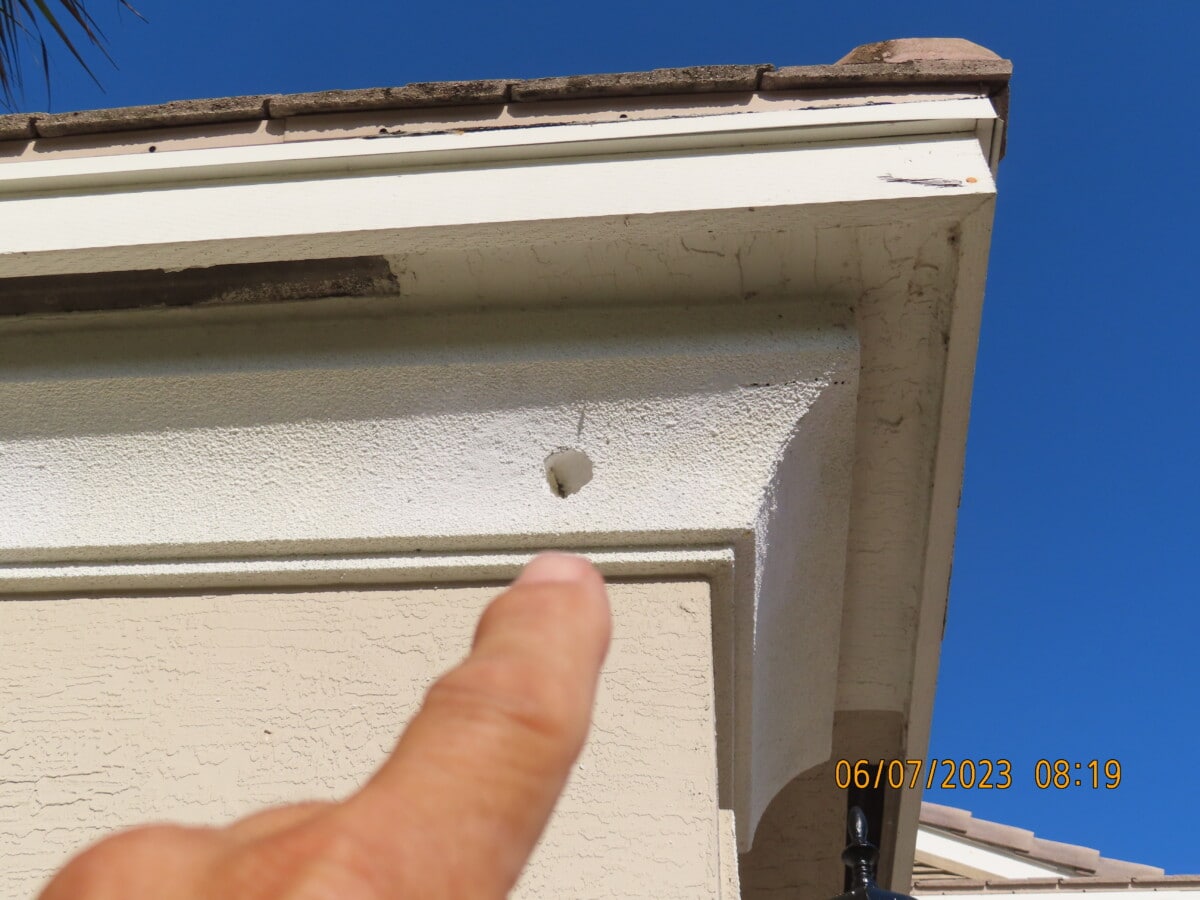
Courtesy of RTS Inspections
3. Storm impact
“Whether factual or mere folklore, the moniker ‘Lightning Capital of the World’ is a label frequently associated with Florida,” shares Sherlock Home Inspections. “Given the prevalence of storms in the region, it’s a nickname that holds some truth. However, with these climatic conditions comes a distinctive set of challenges, particularly in the realm of electrical systems.
Take a close look at the copper wires shown below. While discoloration might typically arise due to oxidation, the distinct blue hue of these wires stems from a surge triggered by a lightning storm. Upon more comprehensive inspection, a host of additional issues were brought to light—underscoring the importance of addressing electrical concerns with precision and vigilance in a region renowned for its electrical intensity.
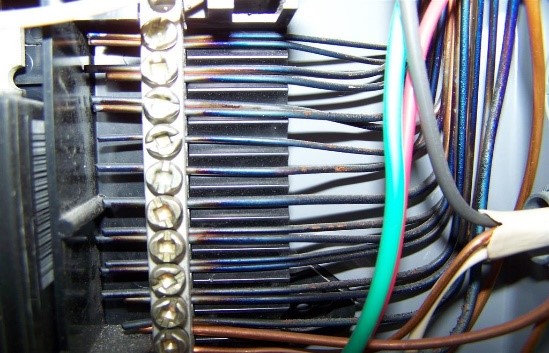
Courtesy of Sherlock Home Inspections
In a state prone to high winds and intense rainfall, addressing roof problems promptly is imperative. Florida’s climatic conditions make it imperative to identify and rectify roofing issues as soon as they arise. It’s crucial to recognize that even minor roof concerns can rapidly snowball into significant complications. Given this reality, securing the services of a knowledgeable Home Inspector becomes paramount. A seasoned professional who understands the intricacies of roofing systems can detect potential red flags, ensuring that minor hitches are nipped in the bud before they evolve into major complications. With the right expertise at your side, you can confidently navigate the challenges of maintaining a secure and resilient roof in Florida’s ever-changing weather landscape.”
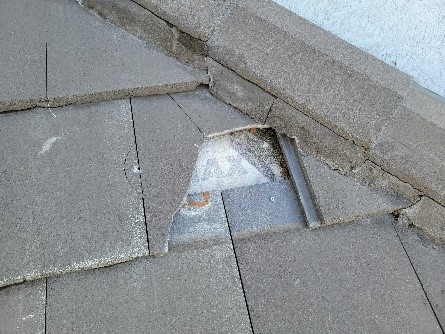
Courtesy of Sherlock Home Inspections
4. Termites
“Florida is susceptible to termite problems due to its warm and humid climate, which creates a conducive environment for these pests to thrive. Termite swarms are a common occurrence in Florida during the warm and humid months. These swarms are often a sign of an established colony nearby, and they can be quite alarming to homeowners,” warns Next Step Inspections.
“The two most common termites are:
Subterranean: These are the most common and destructive type of termites in Florida. They build their colonies underground and create mud tubes to access wood above ground. They can cause significant damage to structures if left unchecked.
Drywood Termites: These termites infest dry wood and do not require contact with soil. They can be found in furniture, wooden beams, and other wooden structures. Their infestations can be hard to detect until significant damage has occurred.
We have found that if the wooden structures go untreated for long periods of time and these insects invade the wood, severe damage can impact the integrity and the structure. We have seen areas that are unsafe to walk in the attic due to significant termite damage. In cases where the damage is detrimental, a structural engineer or building contractor will review the damages to recommend the proper repair.
Dealing with termites in Florida often requires professional pest control services. Regular inspections by experienced technicians can help detect infestations early and implement effective treatment plans. We recommend having a Wood Destroying Organism (WDO) Inspection when you are considering the purchase of a property. This inspection can help identify other issues the home inspector may not be qualified to include in their report.”
5. Polybutylene piping
“Polybutylene piping stands as a nightmare for both property owners and the insurance industry at large. As a solution for home re-piping, polybutylene piping emerged on the scene. It offered flexibility, ease of use, and cost-effectiveness during its time. While it had been in use since the 1970s, its popularity soared in the 1980s and 1990s. However, it was eventually discontinued in the mid to late 1990s due to its susceptibility to leaks,” informs Orlando’s Best Home Inspection. “The chlorine present in municipal water systems caused joints and piping to fail. Typically, the interior of the tube is gray or black, while the exterior can range in blue, black, or gray. The lettering ‘PB’ may also be visible, which is the clearest giveaway.
Presently, many homes still feature polybutylene piping, prompting insurance companies to mandate replacement with approved alternatives like PEX, CPVC, or copper piping.
In our practice, we thoroughly assess this issue during both our standard Orlando home inspection and our Orlando 4-point inspection. We frequently encounter cases where partial re-piping work has been carried out on visible portions of the supply system, only to find original polybutylene piping remaining in less accessible areas such as the attic. Correcting this problem is costly and presents a major obstacle in obtaining home insurance.”

Courtesy of Orlando’s Best Home Inspection
6. Stucco cracks and waterproofing
“Most homes in SouthWest Florida feature exterior walls made of concrete block with stucco finishing. It’s common for stucco to develop hairline cracks over time. These cracks are generally not a structural concern as long as they are too narrow to fit a penny. If a penny can fit, it raises some cause for concern,” suggests Golden Rule Home Inspections.
“When cracks in the stucco follow the block pattern, it indicates excessive settlement in the foundation. Again, if these cracks are wide enough to accommodate a penny, they warrant attention.
The waterproofing of SouthWest Florida’s concrete block and stucco homes relies on painting the stucco. If a crack appears in the stucco, the waterproofing becomes compromised, potentially leading to water intrusion and subsequent mold growth. To address this, it’s recommended to repair the crack by applying a small amount of Mor-Flexx caulking or an equivalent product. After applying, gently rub it in with a sponge or foam paint brush to blend it into the wall’s finish, followed by painting the wall. Mor-Flexx boasts a mortar-like appearance that stretches like rubber, retaining its elasticity over the years.”
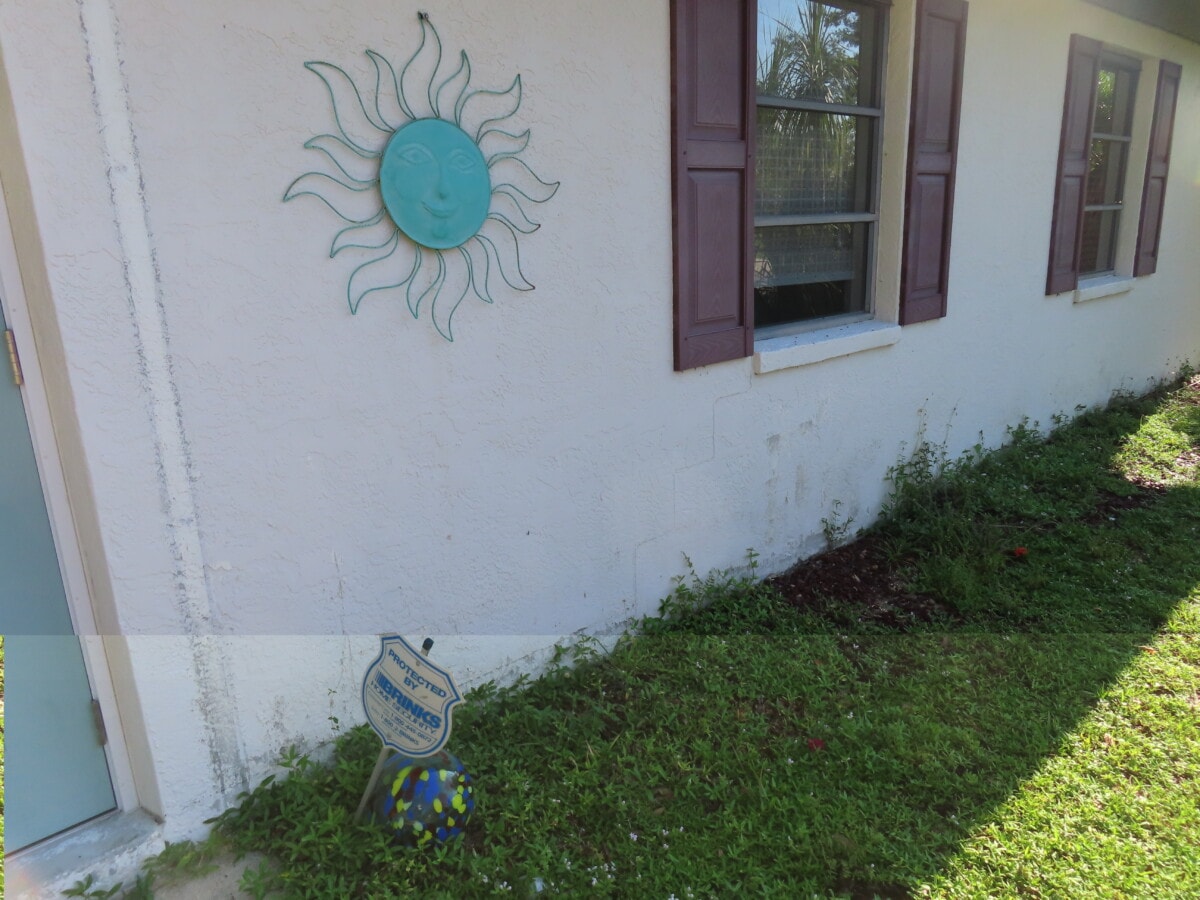
Courtesy Golden Rule Home Inspections
7. Insurance challenges and regional concerns
“I think the biggest issue in Florida right now is insurance companies leaving the state. They have become very particular about roofs. Even though most asphalt shingle roofs last more than 20 years, they do not like roofs past 15 years old. Even in very good condition. This due to the losses coming from hurricanes in the recent past,” says Pillar To Post Home Inspectors.
“Insurance inspections need to be done on top of getting a thorough home inspection. 4-Point (Roofs, Plumbing, Electrical, and HVAC) Inspections are expected on homes 20 years old or older. Getting a Wind Mitigation Inspection, which is determining the home’s wind resistance, can save a lot of money on insurance costs.
Another thing I think is very regional to the state is mold testing. With the humidity in Florida, this is a common concern. Especially in homes that have been vacant, and the air conditioner is not turned on or set at 78 degrees or higher.”
- SEO Powered Content & PR Distribution. Get Amplified Today.
- PlatoData.Network Vertical Generative Ai. Empower Yourself. Access Here.
- PlatoAiStream. Web3 Intelligence. Knowledge Amplified. Access Here.
- PlatoESG. Automotive / EVs, Carbon, CleanTech, Energy, Environment, Solar, Waste Management. Access Here.
- PlatoHealth. Biotech and Clinical Trials Intelligence. Access Here.
- ChartPrime. Elevate your Trading Game with ChartPrime. Access Here.
- BlockOffsets. Modernizing Environmental Offset Ownership. Access Here.
- Source: https://www.redfin.com/blog/florida-home-inspection/
- :has
- :is
- :not
- :where
- 15 years
- 15%
- 20
- 20 years
- 7
- a
- About
- above
- access
- accessible
- accommodate
- Additional
- address
- addressing
- After
- again
- against
- AIR
- All
- allure
- also
- alternatives
- always
- amount
- an
- and
- animal
- animals
- annual
- Applying
- approved
- architecture
- ARE
- AREA
- areas
- arise
- around
- Array
- article
- AS
- assess
- assessments
- associated
- At
- attention
- aware
- away
- backdrop
- BE
- Beach
- become
- becomes
- been
- before
- being
- below
- beneficial
- BEST
- Biggest
- Bill
- bird
- Black
- Blend
- Block
- Blue
- board
- boasts
- both
- branches
- brought
- build
- Building
- Buying
- by
- CAN
- capital
- carried
- case
- cases
- Cause
- caused
- causing
- challenges
- Climate
- Close
- closely
- collaborate
- Colony
- comes
- coming
- Common
- Companies
- comprehensive
- Compromised
- Concern
- Concerns
- condition
- conditions
- Conduct
- confidently
- considerations
- considering
- contact
- continued
- Contractor
- control
- Copper
- costly
- Costs
- covered
- crack
- create
- creates
- crucial
- Customers
- Cut
- damage
- dance
- decades
- decided
- detect
- Determine
- determining
- develop
- different
- distance
- distinct
- distinctive
- diverse
- do
- doing
- done
- doors
- drawn
- dream
- dry
- due
- during
- Early
- ease
- ease of use
- easy
- Effective
- either
- element
- emerged
- encounter
- engineer
- enough
- ensures
- ensuring
- Enter
- entered
- entirety
- entrance
- entry
- Environment
- environmental
- Equivalent
- especially
- established
- Even
- eventually
- ever-changing
- evolve
- expected
- experience
- experienced
- experiencing
- expertise
- Exposure
- external
- factors
- Factual
- FAIL
- Feature
- few
- Find
- finding
- finish
- fit
- flags
- Flexibility
- florida
- flying
- Foam
- follow
- followed
- For
- found
- Foundation
- frequently
- from
- gaps
- generally
- get
- getting
- giveaway
- given
- Go
- good
- grade
- gray
- Ground
- Growth
- had
- Happening
- Hard
- Have
- having
- help
- helps
- Hidden
- High
- higher
- history
- holds
- Hole
- Holes
- Home
- Homes
- host
- House
- However
- HTTPS
- humid
- hurricane
- hvac
- i
- identify
- if
- Impact
- impacted
- imperative
- implement
- importance
- in
- In other
- include
- indicates
- industry
- informs
- inside
- instance
- insurance
- insurance industry
- integrity
- interior
- into
- intricacies
- Invade
- investment
- issue
- issues
- IT
- ITS
- jpg
- jump
- just
- Key
- Label
- Land
- landscape
- large
- Last
- Late
- later
- leading
- Leaks
- leaving
- left
- less
- lesson
- Licensed
- lies
- lightning
- like
- Limited
- local
- Long
- Look
- losses
- Lot
- made
- maintaining
- major
- make
- mandate
- many
- material
- max-width
- May..
- mere
- Mid
- might
- minor
- minutes
- mitigation
- money
- months
- more
- most
- much
- municipal
- my
- narrow
- nationally
- Navigate
- navigating
- Need
- needed
- next
- now
- numerous
- observe
- observed
- obstacle
- obtaining
- occurred
- of
- off
- offered
- often
- Old
- older
- on
- once
- ONE
- only
- or
- original
- Orlando
- Other
- our
- out
- over
- own
- owners
- paint
- painting
- Paradise
- Paramount
- particular
- particularly
- past
- path
- Pattern
- periods
- piece
- plans
- plato
- Plato Data Intelligence
- PlatoData
- Plumbing
- points
- popularity
- possible
- Post
- potential
- potentially
- practice
- Precision
- present
- presents
- Problem
- problems
- Product
- professional
- proper
- property
- purchase
- purchasing
- qualified
- raises
- range
- rapidly
- Reality
- realized
- realm
- recent
- recognize
- recommend
- recommended
- Red
- Red Flags
- Redfin
- region
- regional
- regions
- regular
- regularly
- remain
- remaining
- removal
- remove
- Renowned
- repair
- replacement
- report
- require
- requires
- resilient
- Resistance
- result
- retaining
- review
- right
- roof
- rubber
- Rule
- Save
- saw
- says
- scene
- Search
- Season
- seasoned
- secure
- securing
- see
- seen
- Services
- serving
- set
- settlement
- severe
- Shape
- shapes
- Shares
- should
- shown
- side
- sign
- significant
- since
- SIX
- small
- So
- soared
- soil
- solution
- some
- Soon
- Source
- standard
- stands
- State
- stems
- Step
- Still
- Storm
- storms
- structural
- structure
- structures
- subsequent
- such
- Suggests
- sunshine
- supply
- surge
- susceptible
- system
- Systems
- takes
- taught
- technicians
- term
- Testing
- than
- that
- The
- The Area
- The Block
- The State
- their
- There.
- These
- they
- thing
- things
- Think
- this
- thoroughly
- those
- though?
- three
- Thrive
- Through
- time
- to
- too
- took
- top
- Transparency
- treatment
- tree
- triggered
- truth
- Turned
- two
- type
- typically
- uncover
- underlying
- understands
- unfortunately
- unique
- until
- upon
- us
- use
- used
- using
- Valuable
- very
- vigilance
- visible
- vital
- Wall
- warm
- Warns
- Warrant
- was
- Water
- ways
- we
- Weather
- webp
- were
- West
- What
- when
- whether
- which
- while
- WHO
- wide
- will
- wind
- windows
- winds
- with
- wood
- wooden
- Work
- yearly
- years
- you
- Your
- zephyrnet












